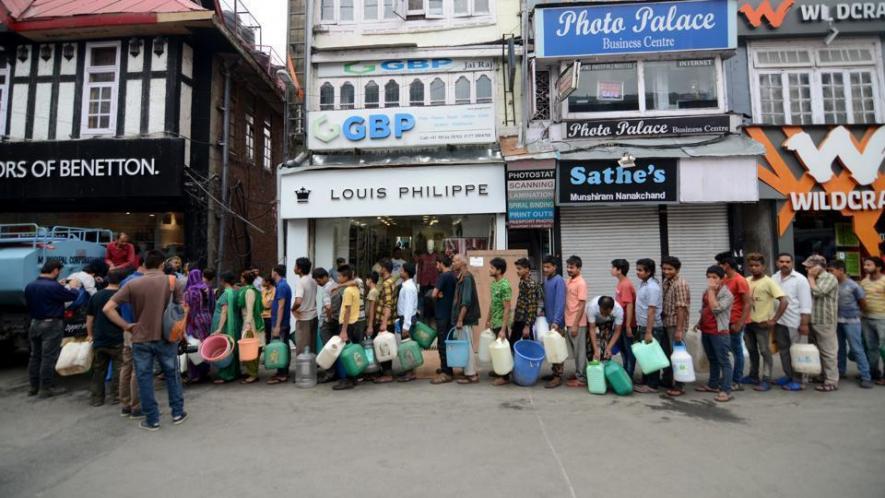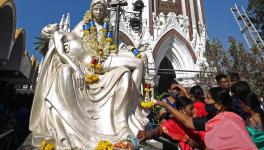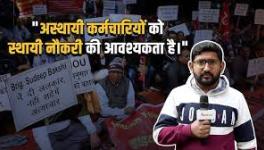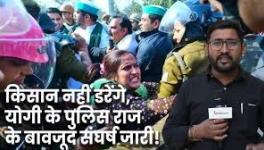How Shyamala Cannot Save Shimla’s Crumbling Infrastructure

“What is in a name? that which we call a rose
By any other name would smell as sweet”
….This is a famous quote from William Shakespeare’s Romeo and Juliet. But it seems, in the contemporary times, there is everything in ‘thy name’, as is evident from the recent spate of changes in the names of cities. Allahabad is Prayagraj and Shimla was proposed to be Shyamala. The Bharatiya Janata Party (BJP), especially the Sangh Parivar and its organisations propounded this idea of Shyamala, which was hyped up by the media. Not just local dailies but newspapers like The Telegraph, which is published from Kolkata, also carried the news of the proposed name change of Shimla very prominently.
The social media was abuzz with opinions of people. The political divide was also evident. A section of the BJP supported the idea whereas Congress and the Left parties opposed it quite firmly. The arguments given in support of changing the name to Shyamla were owing to a temple in Jakhu that existed long ago, which was later shifted to the present Kali Bari. According to this argument, the ‘Blue Goddess’ (Shyamala) was the original name of the region and hence the legitimate right of the region should be awarded and honoured by changing the name.
This seems quite divorced from reality. The ridge of the mountain now inhabited so extensively is a development that the British brought to the region while ruling India. In a way, it was the British rulers who taught regional powers how to ruin the mountains. Prior to that, seasonal migration was commonly practiced by the native communities. In summers, climbing up the mountains for grazing cattle and cultivation and shifting to lowland areas during the winter months was the usual practice. This was practiced even in the Shimla hills.
The Viceregal lodge in Shimla, now the Indian Institute of Advanced Study (IIAS), was a green pasture where wild bear and other wildlife was thriving. The natives, before the British conquered Shimla, hardly climbed these hills. The British brought the art and science of trampling the mountains by exhibiting that even in freezing temperatures one could have electricity as the first hydro power was installed in Gumma. Water was lifted with a head of over 2,000 metres , unheard of in the world to sustain its population on the mountains. Invariably, that is how the British built structures on the mountains in the country through its strong engineering skills. Not only were the hills important from the geo-military strategic location aspect, but the British rulers also wanted to beat the heat in the plains, and the mountains were best suited for that.
Coming back to the name -- Shimla. The name of Shyamala has never been found in any of the gazetteers printed by the British, though these contained very minute details as well. For example, even the extent of per capita tax collection etc., is mentioned in these. But, nowhere has the name Shyamala been mentioned in the texts.
Notwithstanding the British, even the local communities inhabiting the Shimla ridge, especially residing in villages that were under the two princely states -- Koti and Keonthal (Junga) -- did not have any deity named Shyamala. Apparently, both these ‘states’ have ‘Tara Devi’ as their deity, though both the Tara Devis are different. Similarly, the other communities living under these two fiefdoms had their own deities (devtas) and none of them was called ‘Shyamala’. The other native community that dates back even to these two ‘states’ are the Kassites or the Khashas. These communities, too, do not have the name of Shyamala in any of their texts of even etymology.
Historically speaking, it is quite evident that the name does not have a reference in any of the former habitations in the region since the past many centuries. Rather, the Shimla region that is now established was hardly a place for living. Apparently, it was just a pass to cross the mountains.
So, why is it that the BJP and its various organisations proposing a change in the names of cities, railway stations etc? One can understand the regional aspirations of the people or linkage to their past or even manifestation of all of these in a struggle that was suppressed by the colonial rulers. But nothing of that sort is prevalent in Shimla. The BJP is clearly attempting to knit a false history around mythological characters and is letting loose stories that are nowhere close to reality. It is this vision of building ‘mythological’ characters and stories that they intend to exhibit to project themselves as saviours of ‘Indianness’. Whereas the hard fact remains that the Sangh Parivar was nowhere during the freedom struggle. Rather, they were faithful souls of the British.
It is to wean off this past that the BJP and the Sangh Parivar are now trying to build a false narrative to build a ‘new renaissance’ whereas all that they profess and eulogise is hard communalism that goes against the basic tenets of our development.
It is good that the Himachal Pradesh Chief Minister realised the fact that the majority of people in Shimla are opposed to any move to change the city’s name, which has forced the BJP-led state government to dump the idea for now.
The crucial challenge for Shimla is to salvage the city’s crumbling infrastructure with a strong dose of development, so that basic facilities can be provided effectively to the city’s residents. Name change is no solution to that.
(The writer was the directly elected Deputy Mayor of Shimla. He is at present working in the All India Urban Forum.)
Get the latest reports & analysis with people's perspective on Protests, movements & deep analytical videos, discussions of the current affairs in your Telegram app. Subscribe to NewsClick's Telegram channel & get Real-Time updates on stories, as they get published on our website.
























